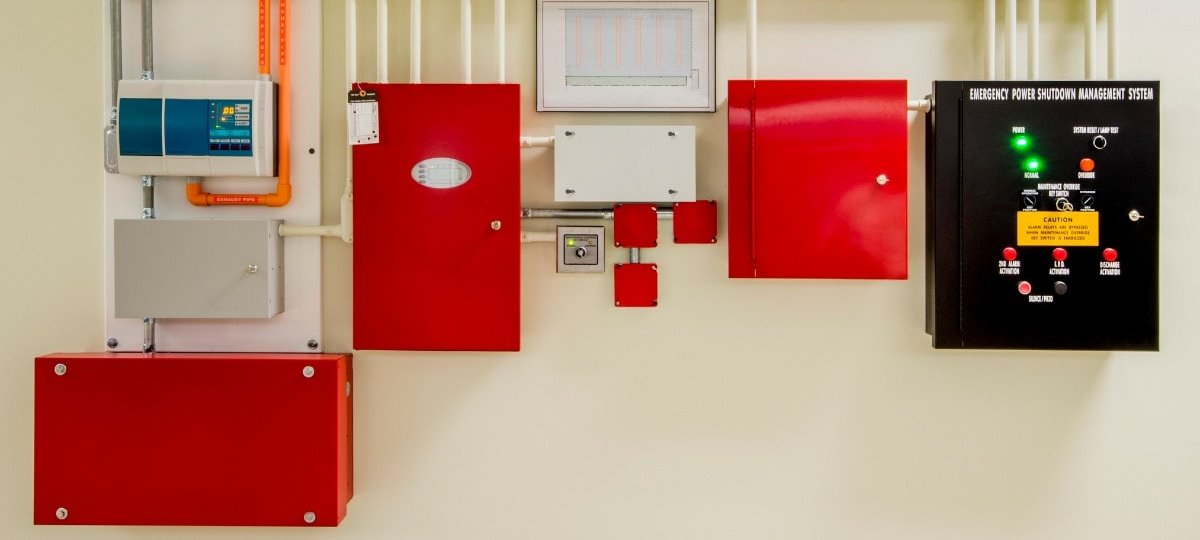Blog
Types of Fire Alarm Systems
How Does a Fire Alarm Work?
- Thermal detectors- these detect fire through a heat-sensitive element
- Smoke and carbon monoxide detectors – detect fire in its early stages, while it is smoldering and producing smoke or senses a build-up of certain chemicals in the air
- Flame detectors – line-of-sight devices that use infrared or ultraviolet light to detect radiant energy that is indicative of a fire signature

Explore Our Other Blogs

How Do Wireless Doorbells Work?
A doorbell is a pretty self-explanatory tool—you press the button outside, and a chime goes off inside, alerting the homeowner that someone is at the front door. Like everything else, though, today’s technology has brought even the humble doorbell into the limelight as an indispensable tool for convenience and security. Pros and Cons of Wireless…

8 Home Security Tips
With more than 45 years of experience in the home and business security industry, here are our top eight tips for discouraging intruders and burglars from targeting your home. 1. Create the illusion that someone is at your house. If you are going to be gone for an extended time, leave a light or TV…

3 Ways to Prevent Shoplifting
Preventing shoplifting is a big deal if you’re a retailer. According to the 2018 National Retail Security Survey, shoplifting continues to be the leading cause of inventory loss for retailers. Loss of stock is a big deal in this country to the tune of nearly $47 billion. The survey also identifies the top ways retailers try…

5 Common Fire Safety Violations
For business owners, maintaining a commercial fire safety system is crucial for day-to-day protection. Ensuring your system and its components are in order is especially important when your business’ fire inspection occurs each year. Even if you do everything you can to prepare for your next fire inspection, you may only realize you missed something…

Where Should Window and Motion Sensors be Placed?
Motion and window sensors are basic parts of a security system in both residential and business applications. The expert security team at FSS Technologies has helped thousands of business and property owners stay safe with these tools. Sensors A motion sensor allows a system to detect movement, using waves or light to determine if someone or…

Code Requirements for Commercial Fire Alarms
Updated December 2021 The International Code Council Assembly: Groups A-1, A-2, A-3, A-4, and A-5 Business: Group B Educational: Group E Factory and industrial: Groups F-1 and F-2 High hazard: Groups H-1, H2, H3, H4, and H5 Institutional: Group I-1, I-2, I-3, and I-4 Mercantile: Group M Residential: Groups R-1, R-2, R-3, and R-4 Storage:…

Can You Get in Trouble for Breaking into Your Own House?
Is it legal for you to break into your own house?

Big Name Home Security Gimmicks
We talk about choosing between a national home security company and a local company, DIY Security systems’ weaknesses, and video doorbells. Choosing a security system can be stressful and overwhelming, especially when you and your family’s security is at stake. So how do you choose a home security system? Do Your Homework It’s critical to do…

3 Ways Security Contracts Help You
Are Contracts Required with All Security Companies? No. Not all security companies require a contract, but that doesn’t necessarily mean a no-contract company is a better option. There are pros and cons to contracts. The key is to know what you are paying for in a contract and details about the reputation of the company. …

Will CCTV Work Without Internet?
CCTV or closed-circuit television is a TV system where the signal isn’t publicly broadcast but is watched and monitored, usually for surveillance and security purposes. You likely won’t make it far on a drive from one city to another without being monitored by at least one CCTV camera. Law enforcement uses cameras on city streets…

